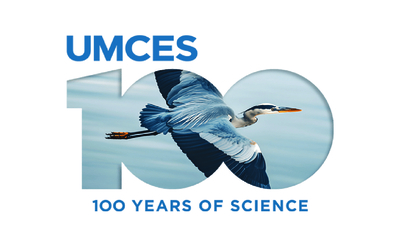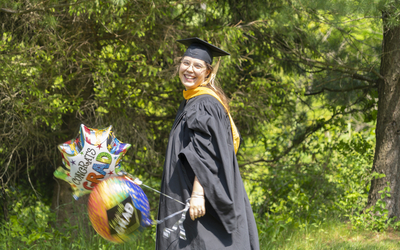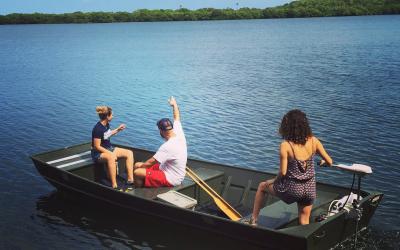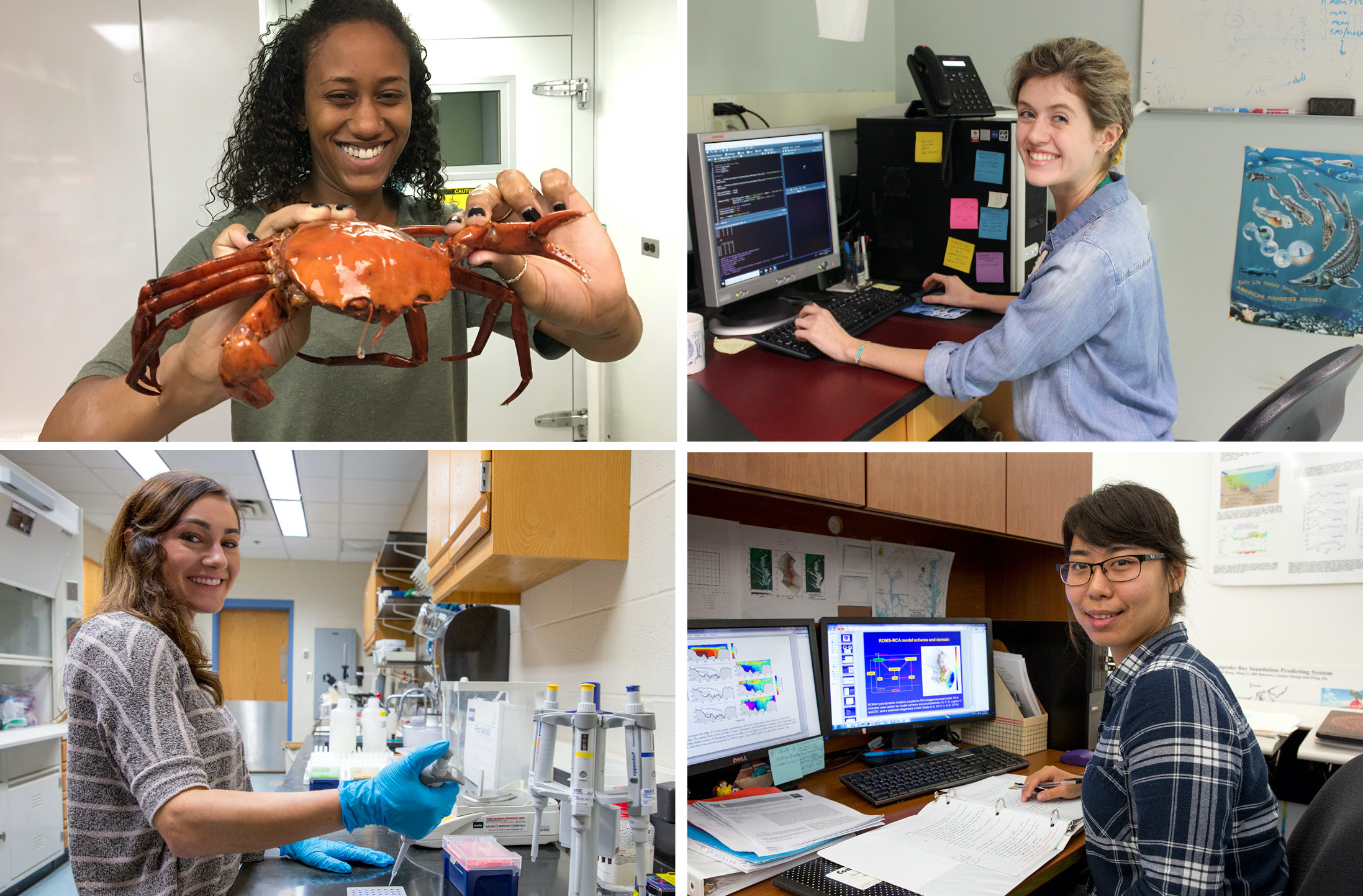
Each year, Maryland Sea Grant welcomes a new class of Knauss Fellows to explore science and policy issues during yearlong fellowship in Washington, D.C. Four University of Maryland Center for Environmental Science students were among the 60 finalists nationwide for the coveted fellowship in 2020. The fellows spent a year working for federal agencies or congressional representatives who focus on ocean and Great Lakes issues, and many continue their careers in marine science policy after their fellowship year.
Katie Hornick worked as a habitat restoration specialist in the NOAA National Marine Fisheries Service’s Office of Habitat Conservation. She worked on a range of topics related to developing monitoring and evaluation approaches for restoration efforts related to the Deepwater Horizon oil spill.
Amanda Lawrence worked with the U.S. Fish & Wildlife Service in the National Wildlife Refuge System for the Coastal and Marine Program to support coastal watersheds and their surrounding communities through conservation and restoration projects.
Wenfei Ni worked at NOAA Research’s Climate Program Office, focusing on climate science, adaptation, and resilience issues. She earned her bachelor’s degree in marine science from Nanjing University, China.
Caroline Wiernicki worked in the Office of the Oceanographer of the Navy. During her fellowship she was working on interagency policy in topics relating to oceanography, meteorology, precise time, and astrometry.
The Knauss Fellows for 2021 include Shadaesha Green and Suzi Spitzer.
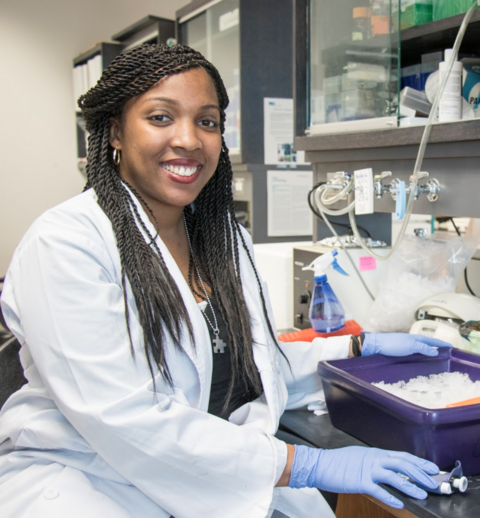
Shadaesha Green is a Ph.D. candidate at the Institute of Marine and Environmental Technology, working with professor Sook Chung to investigate the reproductive biology of female red deep-sea crab to further the understanding of this biology throughout various life phases and to outline the current genetic diversity populations of the species.
"I am really excited to have been chosen as a Knauss Marine Policy fellow. I look forward to spending the year learning how marine policy is developed to conserve and protect our marine resources. All of the wonderful training I have received at IMET and UMCES has prepared me well and I hope to make everyone proud," said Green.
She is a doctoral scholar in NOAA’s Living Marine Resources Cooperative Science Center, a program which trains and graduates students from underrepresented communities in marine science for careers in research, management, and public policy.
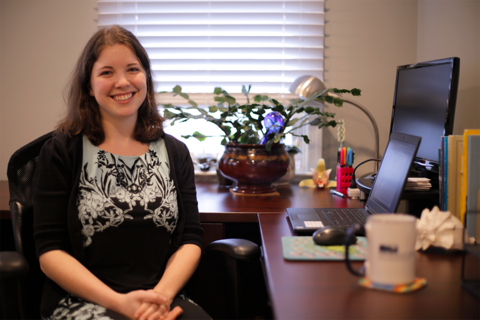
Suzi Spitzer is a graduate research assistant and Ph.D. candidate at the Integration and Application Network working with Dr. Bill Dennison. Her research examines public engagement in Chesapeake Bay environmental science and investigates how the scientific community can more effectively collaborate with citizen scientists and other nonacademic partners to create science that informs inclusive, collaborative, and innovative environmental management decisions.
“Over the last few years, I have become increasingly aware of the central role that policy plays at the intersection of environment and society. I became interested in the Knauss Fellowship because it offers an opportunity to learn more about careers in the policy sector and to gain new skills and experience that will make me a more impactful scientist,” said Spitzer. “Through the Fellowship, I hope to continue communicating complex scientific information so that it can be easily understood and used by a non-specialist audience.”


